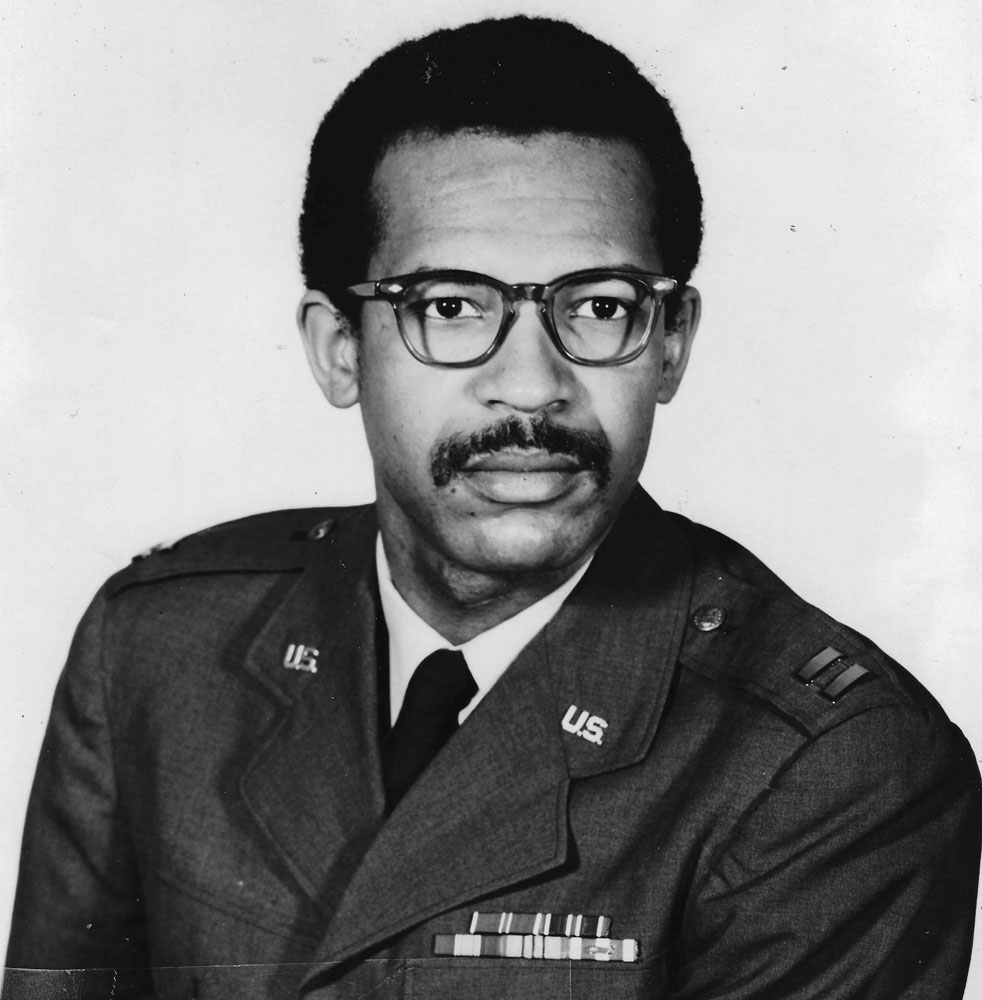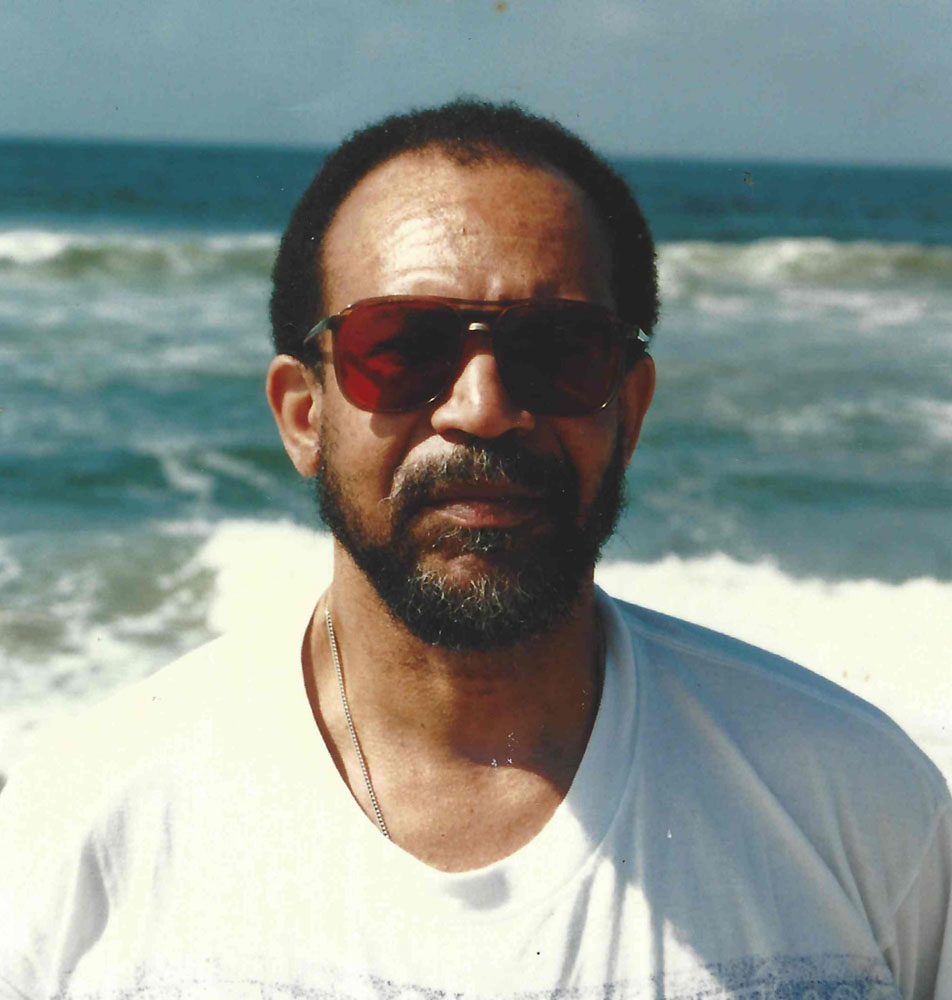 |
Horace Coleman: May 4, 1943 - September 16, 2017By The Coleman FamilyHorace Wendell Coleman, Jr., was born and grew up in Dayton, Ohio, the home of the poet Paul Laurence Dunbar. He was the oldest son of Roberta (MacGregor) and Horace Wendell Coleman, Sr., a World War II Navy veteran. Of himself, Horace said he was the kid who read books with a flashlight under the covers after dutifully turning off the lights. Perhaps these were the early years of both his literary thirst and his resistance. After graduating from Dunbar High School, Horace enrolled at Bowling Green State University of Ohio, majoring in English and participating in the Reserved Officers Training Corps (ROTC). He was initiated into Alpha Phi Alpha fraternity, Epsilon Theta chapter, and is remembered by his brothers as one who mesmerized with his "intellect and savoir faire." While attending BGSU, Horace was also a reporter and photographer for The BG News campus newspaper and held an internship with the Dayton Daily News. He earned the Bachelor of Arts Degree in English in 1965. Following graduation, Horace was commissioned into the United States Air Force as a Second Lieutenant. After assignments in Panama City, Florida, and at Shaw Air Force Base, South Carolina, he left for Ca Mau, Vietnam in February 1967.
In Ca Mau The Americans in Ca Mau eat tin-skinned food The people race bicycles on Sundays In the forest of U Minh Soldiers hunt communist water buffalo In a few months, he was transferred to Saigon where his duties as an intercept director/air traffic controller continued. He was officially credited with ninety-nine saves of aircraft and crews and was awarded the Bronze Star Medal for meritorious service. His tour of duty in Vietnam ended in February, 1968, when he flew out in the midst of the Tet offensive. Back stateside, he held assignments at Topsham AFS, Maine, Richards-Gebaur AFB, Missouri, and Fort Lee, Virginia. Captain Horace W. Coleman was honorably discharged in June, 1970. Having committed to a writing career, he was accepted into the inaugural (Fall 1970) Master of Fine Arts in Creative Writing program at Bowling Green State University, under the mentorship of Dr. Frederick Eckman. Horace arrived back in Ohio just a few weeks following the Kent State shootings which occurred on his birthday. Profoundly affected by his experiences in Vietnam, his passionate portrayals of the war's ramifications addressed every aspect of the conflict. Still Life with Dead Hippie Or, maybe there's this It could be a pink- faced VC broad Of course what it was, And yeah, those kids were fools Then we all find out And did you ever notice Horace received his MFA degree from Bowling Green State University in 1972 and began a career of writing, teaching, commentary, and active pursuit of peace and justice. What could Horace Coleman not do? Teacher, poet, essayist, technical writer. A faculty member at universities from Ohio to California. An Artist in the Schools residency where he taught young students his art. Public Information Officer for the Ohio Department of Health. Proposal writer, technical writer, and editor in the private sector. Writer for the Ohio Arts Council. Marketing and Sales Process Specialist at McDonnell Douglas/Boeing. He was awarded an Individual Arts Grant by the Ohio Arts Council and a Senior Fellowship at the Fine Arts Work Center, Provincetown, Massachusetts. And he continued writing, always through the unwavering, unfiltered eyes of the veteran, especially the black veteran.
A Downed Black Pilot A single-spaced bibliography of Horace's publications—poems, essays, reviews, commentary—would itself fill pages. In addition to his two collections of poetry, Between a Rock and a Hard Place and In the Grass, published by Vietnam Generation, Inc. & Burning Cities Press, his work appears in newspapers, journals, textbooks, on-line publications, anthologies (including Carrying the Darkness edited by W.D. Ehrhart). Ehrhart writes that Coleman: "better than any other Vietnam War poet, presents in his 'OK Corral East/Brothers in the Nam' poems the ironic juxtaposition of the American Frontier and the black American's newly enraged consciousness. Using an allusive compression unusual in Vietnam War poems, Coleman portrays accurately and ominously the black/white confrontation that pervaded the '60s, showing that this war within the war may have transcended the obvious shooting hostilities. Black/white imagery controls many of his poems. [W.D. Ehrhart, Unaccustomed Mercy: Soldier-Poets of the Vietnam War, Texas Tech University Press, 1989]" Horace wrote numerous articles for, and was committed to the work of, Veterans for Peace, and Vietnam Veterans Against the War (VVAW). He was a regional contact person for both organizations and a lifetime member of VVAW. Notes for the
Horace PS. Save the instructions for your grandkids. They'll come in handy.—hc Of himself, Horace Coleman wrote, "[I have] survived two marriages, a major illness, a car wreck, and the current sorry state of humanity and the economy." He is survived by two daughters, Brooke Danielle Coleman and Akeiisa Elizabeth Coleman; one son, Drake Anthony Coleman; a sister, Lynette Coleman; brother, MacGregor Coleman, his former wives, Gwendolyn Rosemond and Charlaine Vitarelli, and an extended family of cousins, friends, and writers. Contributions can be made in the name of Horace W. Coleman, Jr., to: Veterans for Peace and/or
|



